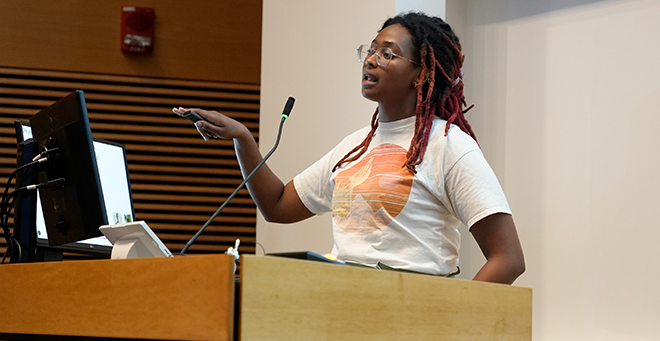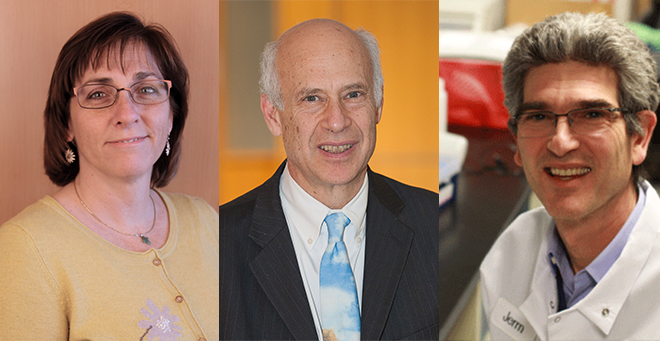
Photo: Colleen Locke
More than a hundred infectious disease scientists, virologists, researchers, students and postdoctoral fellows representing 17 institutions from across the commonwealth converged on UMass Chan Medical School this week for the annual Massachusetts Consortium on Pathogen Readiness (MassCPR) Symposium.
Established in 2020 to enhance Massachusetts preparedness for future pandemics, MassCPR brings together hundreds of basic and translational scientists, clinicians and public health professionals from a variety of disciplines, including virology, immunology, microbiology, epidemiology, pathology, diagnostics and therapeutic development, computational biology, and clinical medicine. The focus of the 2024 symposium was the biology and infectious mechanisms of endemic, emerging and submerging viruses.
“Last year, our focus was on public policy,” said Jeremy Luban, MD, the 2024 MassCPR Symposium chair and co-moderator. “This year we are rolling up our sleeves and going back to a grass roots approach, talking about the basic biology of pathogens.”
Dr. Luban, the David J. Freelander Memorial Professor in AIDS Research and professor of molecular medicine at UMass Chan and a member of the MassCPR executive committee, was joined in moderating the event by Megan Horn Orzalli, PhD, assistant professor of medicine at UMass Chan.
Initially formed to aid with development and deployment of the SARS-CoV-2 vaccine and antivirals, MassCPR has grown into an unprecedented collaboration built upon the growing necessity to focus on infectious agents with pandemic potential. MassCPR leads four focus areas that build upon, as well as collaborate with, other research efforts within the consortium to chart a path for the future of infectious disease research.
“The scientists and researchers gathered today all work in different fields and across different geographies but they have one critical thing in common: They are obsessed with pathogens and revealing the biological mechanisms necessary for developing new vaccines and antivirals that could potential save millions of lives,” said Luban.
The keynote addresses were delivered by Yoshihiro Kawaoka, PhD, DVM, MS, professor at the Influenza Research Institute at the University of Wisconsin-Madison and at the Institute of Medical Science, Infections and Advanced Research Center at the University of Tokyo and director of the National Center for Global Health and Medicine in Japan; and Eva Harris, PhD, professor of infectious diseases and vaccinology at the University of California, Berkeley School of Public Health; professor of cell and molecular biology at the University of California, Berkeley; and director of the UC Berkeley Center for Global Public Health.
Dr. Kawaoka is a virologist specializing in the study of influenza, SARS-CoV-2 and Ebola viruses. He worked extensively in the development of the Ebola vaccine. Dr. Harris, meanwhile, developed a multidisciplinary approach for studying the virology, pathogenesis, immunology and epidemiology of dengue and other prevalent mosquito-borne viral diseases in humans. Recently, she has extended this work to COVID-19 pathogenesis, therapeutics, epidemiology and seroprevalence.
Among the day’s presenters was Morningside Graduate School of Biomedical Sciences student Milky K. Abajorga. A student in the labs of Luban and William E. Theurkauf, PhD, professor of molecular medicine, Abajorga presented her work on KoRV-A, a retrovirus threatening the koala population.

